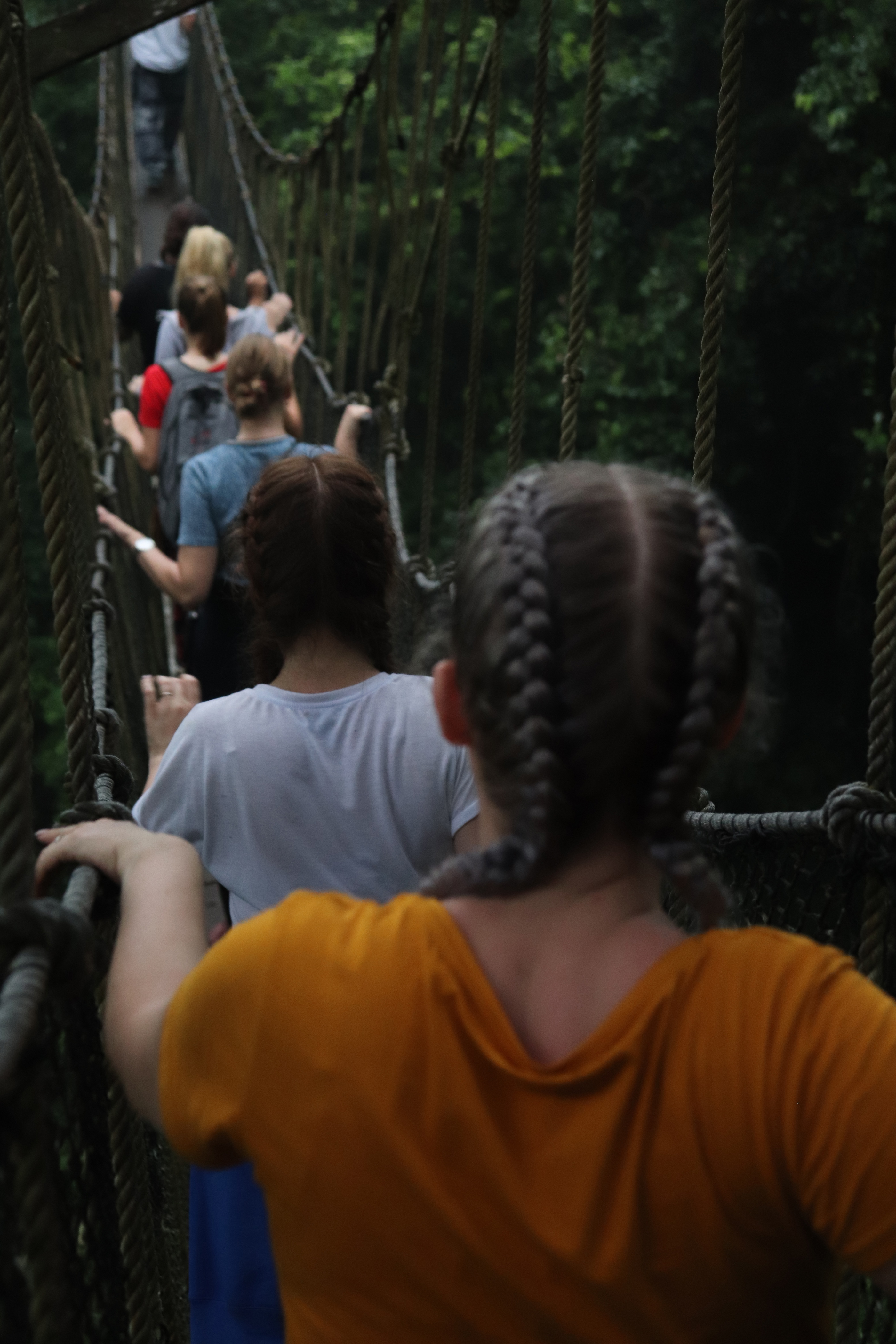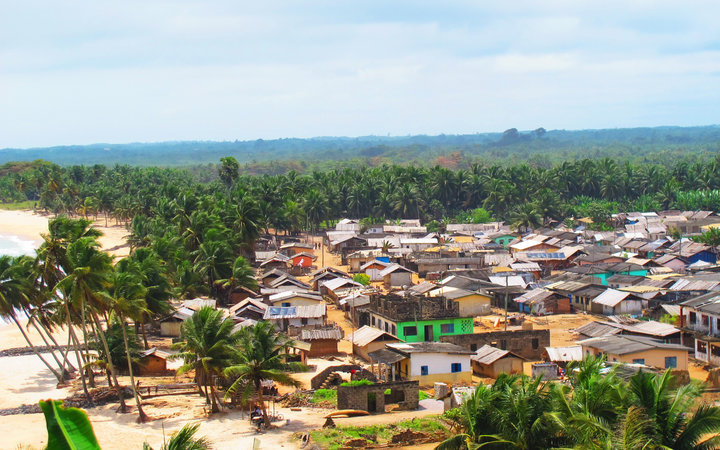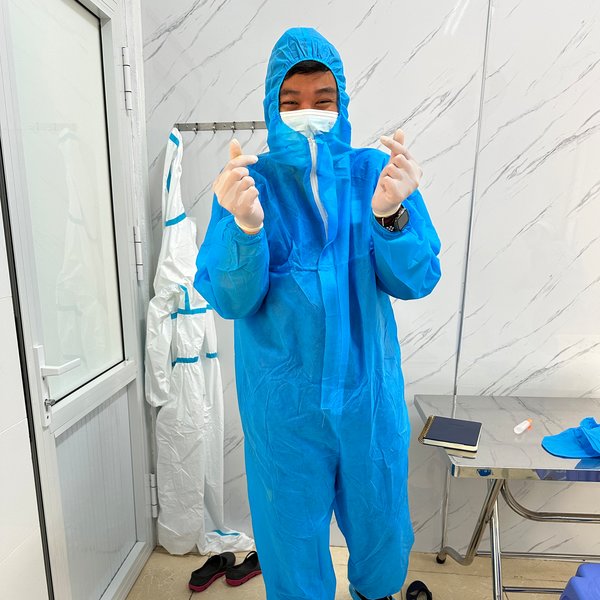Complutense University Madrid 2020
I have always been quite an impulsive person, never thinking too much about the things I do or want to do. However, when it came to doing an elective placement abroad I have never doubted myself and what I wanted to do more.
In Spain, it is pretty uncommon to take an elective placement abroad and because of this, we don't have information about the possibilities that are open to us. So, when I decided I wanted to do a placement far from home all I had were doubts: 'where to go', 'who to go with', 'when to go', 'what I would need to take', and so on.

I started my own research and after a few days, I came across the Work the World website, which answered every single question I had.
From the start, I loved how everything seemed; well-organised, a lot of good testimonies, financially reasonable, and a good reputation not only in the UK but also worldwide.
For all of these reasons, I enquired on their website with a couple of questions and as soon as these were answered I knew this was the organisation I was going to do my placement with.
After a few emails with the Work the World team, I decided I wanted to go to Africa and the team assured me that Ghana was well-worth-it.
Finally, in July, I arrived in Ghana after a really long flight with a stop-over in London where I had to run from one plane to another which ended up delayed anyway. On the plane from London, I met another student who was also going to Takoradi and suddenly all of my fears disappeared.
In Accra, a member of the Work the World team was waiting for us, wearing a visible blue Work the World t-shirt and a big smile which made us feel at home. The next day, we left for Takoradi after joining five other students who were already at the hotel and the real adventure began with a 5-hour van journey.

When we arrived at the house, the sun had already set so we couldn’t fully appreciate the beauty of the house we were going to be staying in. We knew the house was full, but only a few students were there at the time because most of them had left for Mole National Park and some others were at the beach.
On Monday, we had a city tour and met the department teams at the hospital. I was the only pharmacist at the Work the World house, so I met the pharmacist in charge of the pharmacy team at the hospital personally and although he was visibly busy, he made me feel comfortable and welcomed.
The next day, the first Tuesday I was there, was the day I properly started my placement in the main dispensary at the regional hospital.
The hospital was huge as it is the main referral centre in the region. There were never enough beds for patients and going from one part of the hospital to the other wasn’t always straightforward. We had to go from one building to another crossing an elevator which wasn't working! However, the people and the staff there were friendly and intelligent.

The pharmacy department where I was based was huge. It was not only formed of the main hospital staff but also counted on people doing their National Service and a bunch of Ghanaian pharmacy students. In fact, in my first week there, there were Ghanaian students with me on placement, who made everything easier to learn and understand.
As a pharmacy student, I had the opportunity to rotate through different clinical areas. But, on Tuesdays and Thursdays, we had a presentation on a different topic; Tuesdays it was held by one of the pharmacy students and Thursdays it was held by one of the surgeons of the general surgery department.
Ghanaian time is different from our concept of time. They were never punctual, but as they say, they arrived when they intended to. However, although this was true for most of the people in Ghana, pharmacists worked differently and whenever they had a lecture, they were never late.
During the first week, I spent Tuesday, Wednesday, and Friday at the main dispensary where I could really appreciate the differences between Ghanaian and Spanish pharmacy.
In Ghana, everything was slow, and just for one patient, at least four staff were needed. Patients had to leave their folders in a box where someone from the department would pick it up and register it on a computer, then another staff member would register it in a book of medications where everything that was prescribed was written down, then another person (normally a student) would pick up the medication prescribed by the physician and give it to another pharmacist who would shout the name written on the folder and give the medication to the patient with some explanations.
 This was a really slow process and patients would sometimes wait half an hour or longer to receive their medications, so the waiting room was always full.
This was a really slow process and patients would sometimes wait half an hour or longer to receive their medications, so the waiting room was always full.
At the dispensaries (there was also an A&E dispensary) they only had the most common medications (for things like diabetes, hypertension, and cholesterol) and although they came in boxes, it surprised me that in Ghana they only gave the patients the number of pills or boxes of syrup that they were going to need. So if the box contained 30 pills and the patient only needed 10, they would put 10 pills in a bag on which we wrote the name of the medication and how many times a day the patient needed to take them.
This was really different from how things are done in Spain, where we would normally just give the patient the whole box of medication and expect them not to use the rest.
When the medication wasn't available, we wrote down the prescription from the physician on another piece of paper and signed it so the patient could go to a community pharmacy where they would find the medicine.
I made such good friends with some of the Ghanaian students
The first week was a little bit more challenging than I expected but in the end, I made such good friends with some of the Ghanaian students that they even invited me for lunch and to go to the beach with them. I still keep in touch with them and we even video chat every now and then.
 In my first week, we even had a lady come to measure us to make clothes with traditional cloth, which was awesome!
In my first week, we even had a lady come to measure us to make clothes with traditional cloth, which was awesome!
That weekend more than a dozen of us at the Work the World house left for Kakum National Park where we enjoyed a night sleeping in a treehouse and saw monkeys jumping from tree to tree and did a canopy walk through the rainforest.
After we left the park we went to Cape Coast where we could have gone inside the castle, but instead, we stayed at the beach for the whole morning. We had the chance to experience first hand how the fishing was done and even played a game of beach volleyball with some locals.
The three weeks of placement were thrilling enough that I could write about them for hours or even days, but I’ll keep it short and get to the main points.
In addition to the main dispensary, I spent some days in the general surgery department learning about the pathologies of patients and how they were being treated.
I even got the chance to attend some surgeries! I saw two C-sections, two or three biopsies and an appendectomy on a child.
Although I am not a medicine student, the surgeons allowed me to watch some thrilling techniques (usually done by machines in most theatres back home) where I was close enough to take in every little detail.
Moreover, I spent two days in the female and male wards and I got to go to visit the HIV clinic, an experience everyone should try to have.

Although I greatly value my time at the hospital, the thing I am most thankful for is the people I met through this experience, not only my housemates but also the Work the World team.
Ghanaian people have proved to be kind, open-minded and prepared to accept others into their community, no matter what.
I’m unable to choose just one thing from Ghana that stands out, but it’s the whole experience in itself. I would highly recommend doing this at least once in your life.
Being able to leave everything you know and what you are used to for a life-changing experience enriches you in a way nobody can understand until you have actually lived it. You just have to be open to the experience and go for it.









